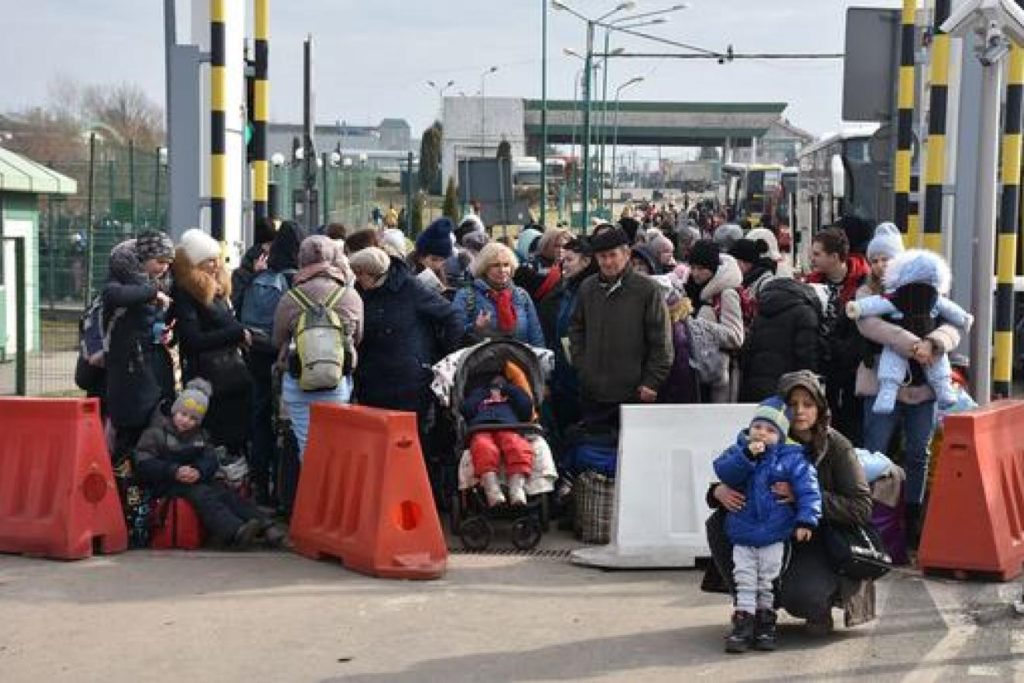Geneva/New York, March 7 – The Russian military operations in Ukraine have shattered millions of lives, made 1.7 million refugees and killed 406 people among more than 1,200 civilian casualties in 11 days of violence but “the real figure could be considerably higher,” the UN humanitarian relief coordinator told the UN Security Council.
Martin Griffiths, the Under-Secretary-General for Humanitarian Affairs and Emergency Relief Coordinator, said the relief works involved many UN agencies and non-governmental organizations and his office in Geneva began sending surge staff days before the Russian invasion started on February 24.
“People are watching as this unnecessary conflict engulfs cities and civilians with an extra sense of dread over the impact it will have on the wider world. I include myself in this category,” Griffiths said as he and UN staff and volunteers have been working non-stop without any sleep since the Russian invasion.
He described the war’s impacts on civilians in Ukraine as follow: “People cannot stay home with shops shut, power and water cut, shells falling and phones switched off. They can’t find what they need even if they have money to pay for it. As we have seen even as the TV cameras roll, many can’t even flee in safety either. “
The UN refugee agency said more than 1.7 million refugees escaped violence, fear and pain and constituted the largest surge of refugees since World War II. The Office of the UN High Commissioner for Human Rights reported at least 1,207 civilian casualties, including at least 406 dead. “The real figure could be considerably higher,” Griffiths said.
He said humanitarian assistance has continued in all areas in Ukraine where security, including in cities such as Mariupol, Kharkiv, and Kherson, and relief response is also being scaled up from hubs in Vinnutsya, Uzhorod and Lviv.
“The UN and our partners have already provided food to hundreds of thousands of people. The World Food Program is setting up supply chain operations to deliver immediate food and cash assistance to 3-5 million people inside Ukraine, “Griffiths said.
The UN humanitarian office appealed for $1.7 billion days after Russian military forces began their operations in Ukraine. Griffiths said donors have generously met the request.
He saidthe World Health Organization has shipped trauma care, emergency surgery equipment and other supplies that will help thousands of people and more supplies are on their way. The UN High Commissioner for Refugees is providing assistance through a network of shops in Mariupol, in collaboration with NGOs. It’s bringing in thousands of blankets, mattresses and other relief items from Poland and shipping them to transit centers. In addition, the Ukrainian Red Cross has distributed humanitarian assistance to thousands via its emergency stockpiles.
“I especially salute the more than 4,000 Red Cross volunteers, the community workers of local NGOs, the truck drivers carrying basic necessities into volatile areas,” he said.
Griffiths said his office has requested Moscow (1) to take constant care to spare civilians and civilian homes and infrastructure in their military operations; (2) create safe passage for humanitarian supplies into areas of active hostilities. Civilians in places like Mariupol, Kharkiv, Melitopol, and elsewhere desperately need aid, especially life-saving medical supplies and (3) the UN urgently needs a system of constant communication with parties to the conflict and assurances to enable the delivery of humanitarian aid.
Griffiths said the Russian invasion of Ukraine, which he called an “unnecessary conflict” happened while populations in other countries badly need humanitarian assistance.
“I am deeply worried about the consequences on vulnerable people living half a world away.
Food prices are spiking and supplies uncertain. We didn’t need that either. People in the Sahel, Yemen, the Horn of Africa, Afghanistan, Madagascar, and beyond already face profound food insecurity.
Record-level fuel prices mean life becomes harder still in places like Lebanon, where generators keep hospitals open and water treatment plants working.
We simply cannot afford to have political attention and donor funding diluted, diverted from other pressing humanitarian crises. This may be the latest war, but not the only one.”
United Nations correspondent journalists – United Nations correspondent journalists – United Nations correspondent journalists
United Nations journalism articles – United Nations journalism articles – United Nations journalism articles

